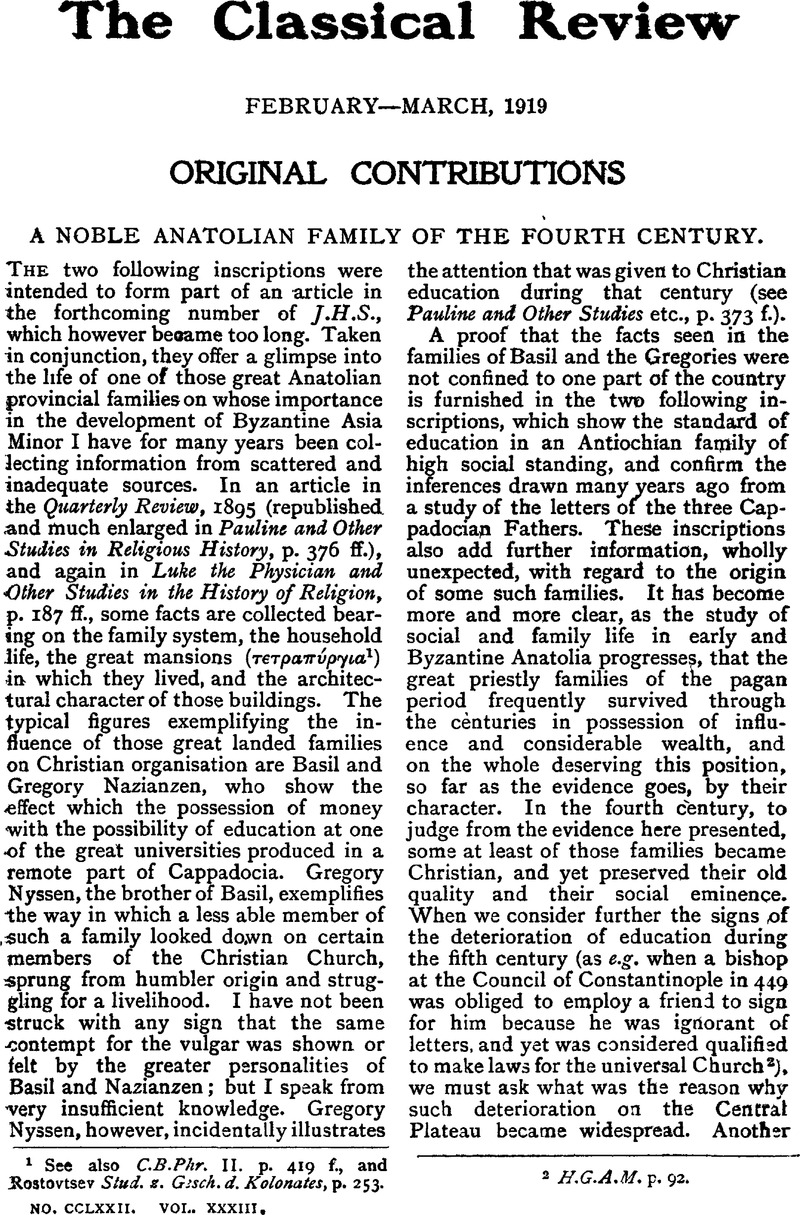Published online by Cambridge University Press: 27 October 2009

page 1 note 1 See also C.B.Phr. II. p. 419 f., and Rostovtsev, Stud. s. Gesch. d. Kolonates, p. 253Google Scholar.
page 1 note 2 H.G.A.M. p. 92.
page 2 note 1 I am indebted to Professor A. W. Mair for many suggestions, most of which I have adopted : also, as usual, my debt to Professor W. M. Calder is great.
page 3 note 1 The genitive -του is barred out by Σωκρ⋯τους above: that form, common in late inscriptions, is below the Greek standard of this epitaph.
page 4 note 1 περιδ⋯ω is rare in the sense of putting on. Professor Mair thinks that it was used of removing the inner garment, ⋯ποδ⋯ω of putting off the outer cloak.
page 5 note 1 τολμ⋯σαντα : (σ)τοιχ⋯σαντα would mean acting according to.’
page 5 note 2 A second name in one case at least.
page 6 note 1 The text would then be εἰκοσι ἕκτον.
page 7 note 1 Gemen two hours south-east of Yalowadj, two hours north-west of Oerkenez.
page 8 note 1 See the writer's Pauline and Other Studies in Early Christian History, pp. 380 f.
page 8 note 2 This criterion of date is emphasised in the writer's paper on ‘The Church of Lycaonia in Century IV.’ (Luke the Physician, and Other Studies in the History of Religion, p. 336 f.).
page 8 note 3 I have conjectured in Bearing of Research on New Testament, p. 157, that L. Sergius Paullus governed Galatia between Asprenas and Collega; but left it open as a possibility that Sergius was already governor under Nero. I now believe that the latter alternative is more probable, that Sergius died in office young, and was succeeded by Calpurnius Asprenas, A.D. 68. This supposition suits Tacitus' expression ‘provincias regendas permiserat Galba (Asprenati)’ (Hist. II. 9). When Sergius Paullus died, the governor of Pamphylia was directed to take over Galatia also, and thus exceptionally the Galatian governor ruled the coast that year. Other reasons for suspecting that this Sergius died young are stated in my article on the Sergii Paulii in Expos. Times, April, 1918.
page 8 note 4 The facts as an argument of date are stated more folly in my paper ‘The Fourth Century Church in Lycaonia’ (Luke and Other Studies in the History of Religion, p. 336 f.).
page 9 note 1 Sepulchral Customs in Ancient Phrygia, J.H.S., 1884, p. 261, more developed in Studies in E. Rom. Prov. p. 271 ff.